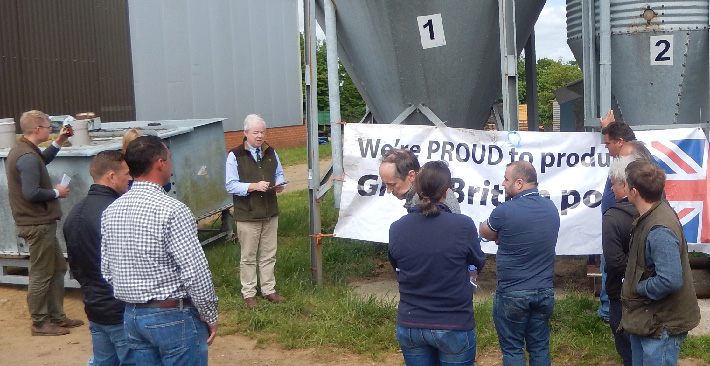The German market is certainly worth mentioning following three successive weeks of rises, which have seen the influential producer price rise from €1.39 to €1.55, which is equivalent to 137p in our money, but the SPP has slipped back again by 0.55p to 149.26p.
Unfortunately, the same bullish tendencies have not been seen on the GB market, with weekly contribution prices slipping back a penny in some cases and standing on in others.
Demand for spot bacon was marginally firmer partly due to the rising cost of imports, with spot bacon traded in and around 145p/kg, but regular sellers are achieving higher prices than this in the 150p/kg region.
Fresh meat wholesalers are reporting that the GB market still remains “quiet”, but hopefully demand will pick up when schools and factories return to work after the upcoming August Bank Holiday.
Although the value of the Euro has remained virtually static, trading on Friday worth 89.61p compared with 89.76p seven days earlier, thanks to rising German pig prices cull sow quotes are continuing to head north and getting back somewhere closer to where they should have been all year round, with export quotes in the 70p-74p/kg range.
Weaner values are continuing to lose ground with the latest AHDB 30kg ex farm average dropping by £3.25/head to £52.79/head and the 7kg average has also followed a similar downward track slipping by £1.98/head to £37.41/head.
Weaner buyers are still remaining very cautious due to the lethal combination of higher feed prices and expensive straw as well as a lack of finishing space in the system, which has helped to open up a widening gap between Red Tractor and Freedom Food weaners and those sellers with a weaner contract will need to keep it in a safe place, because the spot market is certainly not for the faint hearted at present.
Feed costs continue their upward track in a relatively volatile bull market with London feed wheat quoted for November at £186.15/t and next March at £190.95/t.
UK spot wheat trades have been in the £170/t region with harvest drawing to a close, although the recent wet weather has slowed the combines down in some regions and straw quality may suffer too.
UK protein prices have remained at generally similar levels with 48% soya traded ex Liverpool at £344/t and 34% rape meal ex Kent at £226/t, but with feed forming 60% of the cost of rearing a pig even the slightest movement in feed prices can have a dramatic effect on margins one way or the other and, unfortunately, finished pig prices are now falling behind COP levels in many sectors.
And finally, reports that a second case of African Swine Fever has been detected in China could have a serious effect upon the massive Chinese pig industry, but if the disease becomes more widespread this could open the door to better demand for pigmeat from non-ASF countries.




